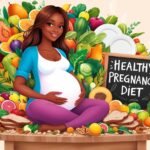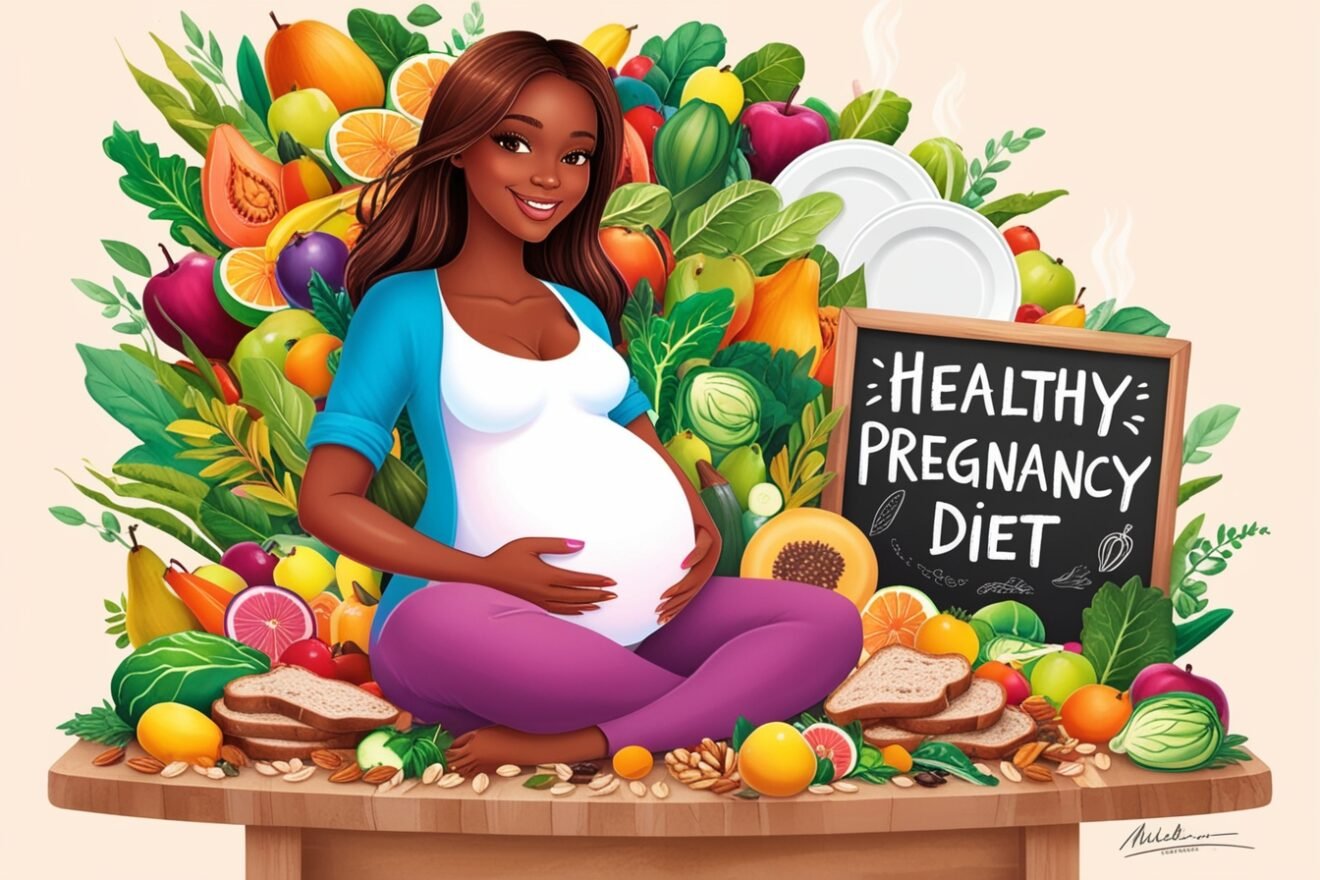Comprehensive Guide to a Healthy Pregnancy Diet
Pregnancy is a remarkable journey that requires special attention to nutrition to ensure the health and well-being of both the mother and the developing baby. Proper nutrition during pregnancy supports the baby’s growth and development and helps the mother maintain her health and energy levels. This article provides an in-depth look at a healthy pregnancy diet, including nutritional advice, meal plans, and lists of foods to eat and avoid.
Importance of a Balanced Diet During Pregnancy
A balanced diet during pregnancy is crucial because it provides the essential nutrients needed for the baby’s development and the mother’s health. These nutrients include vitamins, minerals, protein, healthy fats, and carbohydrates. A well-rounded diet helps in:
- Fetal Development: Ensures the proper growth of the baby’s organs, brain, and tissues.
- Maternal Health: Reduces the risk of pregnancy complications such as gestational diabetes and preeclampsia.
- Energy Levels: Helps the mother maintain her energy levels throughout the pregnancy.
- Immune System Support: Strengthens the immune system, protecting both mother and baby from infections.
Key Nutrients and Their Sources
- Folic Acid: Crucial for preventing neural tube defects. Sources include leafy green vegetables, citrus fruits, beans, and fortified cereals.
- Iron: Essential for the production of hemoglobin, which carries oxygen in the blood. Good sources are lean meats, spinach, beans, and fortified cereals.
- Calcium: Important for the development of the baby’s bones and teeth. Found in dairy products, leafy greens, and fortified plant-based milks.
- Protein: Necessary for the growth of fetal tissue, including the brain, and increases blood supply. Sources include lean meats, eggs, dairy products, legumes, and nuts.
- Omega-3 Fatty Acids: Important for the baby’s brain and eye development. Found in fatty fish like salmon, flaxseeds, chia seeds, and walnuts.
- Fiber: Helps prevent constipation, a common issue during pregnancy. Sources include whole grains, fruits, vegetables, and legumes.
- Vitamin D: Works with calcium to help develop the baby’s bones and teeth. Found in fortified milk, fatty fish, and sunlight exposure.
Foods to Include in a Pregnancy Diet
- Leafy Greens: Spinach, kale, and broccoli are rich in vitamins and minerals.
- Fruits: Oranges, bananas, berries, and apples provide essential vitamins and fiber.
- Whole Grains: Brown rice, quinoa, oats, and whole-wheat bread offer sustained energy and fiber.
- Lean Proteins: Chicken, turkey, lean beef, and plant-based proteins like beans and lentils.
- Dairy or Fortified Alternatives: Milk, yogurt, cheese, and fortified plant-based milks provide calcium and vitamin D.
- Nuts and Seeds: Almonds, walnuts, chia seeds, and flaxseeds offer healthy fats and protein.
- Hydration: Adequate water intake is essential for maintaining amniotic fluid levels and preventing dehydration.
Foods to Avoid During Pregnancy
- Raw or Undercooked Seafood and Meat: Risk of bacterial infections and parasites.
- Certain Fish High in Mercury: Shark, swordfish, king mackerel, and tilefish can harm the baby’s developing nervous system.
- Unpasteurized Dairy and Juices: Risk of listeria, which can lead to miscarriage or stillbirth.
- Caffeine: High intake is linked to an increased risk of miscarriage. Limit to 200 mg per day (about one 12-ounce cup of coffee).
- Alcohol: No safe level of alcohol during pregnancy; it can lead to fetal alcohol spectrum disorders.
- Processed and Junk Foods: High in unhealthy fats, sugars, and sodium, which can contribute to excessive weight gain and other complications.
Sample Meal Plan
Breakfast:
- Oatmeal with Berries and Nuts: Provides fiber, vitamins, and healthy fats.
- Whole-Grain Toast with Avocado: Adds healthy fats and fiber.
Morning Snack:
- Greek Yogurt with Honey and Chia Seeds: Offers protein, calcium, and omega-3s.
Lunch:
- Grilled Chicken Salad with Mixed Greens, Tomatoes, and Olive Oil Dressing: Rich in protein, vitamins, and healthy fats.
- Whole-Grain Roll: Adds fiber and carbohydrates.
Afternoon Snack:
- Apple Slices with Peanut Butter: Provides vitamins, healthy fats, and protein.
Dinner:
- Baked Salmon with Quinoa and Steamed Broccoli: Offers omega-3 fatty acids, protein, and fiber.
- Mixed Green Salad: Adds extra vitamins and minerals.
Evening Snack:
- Cottage Cheese with Pineapple: Provides protein and calcium with a sweet touch.
Additional Tips for a Healthy Pregnancy Diet
- Regular, Balanced Meals: Aim to eat small, balanced meals throughout the day to maintain energy levels and prevent nausea.
- Prenatal Vitamins: Take prenatal vitamins as prescribed by your healthcare provider to ensure you’re getting essential nutrients.
- Stay Hydrated: Drink plenty of water and avoid sugary drinks.
- Listen to Your Body: Eat when you’re hungry and stop when you’re full. Pay attention to any food aversions or cravings.
Maintaining a healthy diet during pregnancy is vital for the well-being of both the mother and the baby. By focusing on nutrient-rich foods and avoiding those that pose risks, pregnant women can support their health and ensure a healthy start for their baby. Always consult with a healthcare provider for personalized advice and recommendations.
















Add Comment